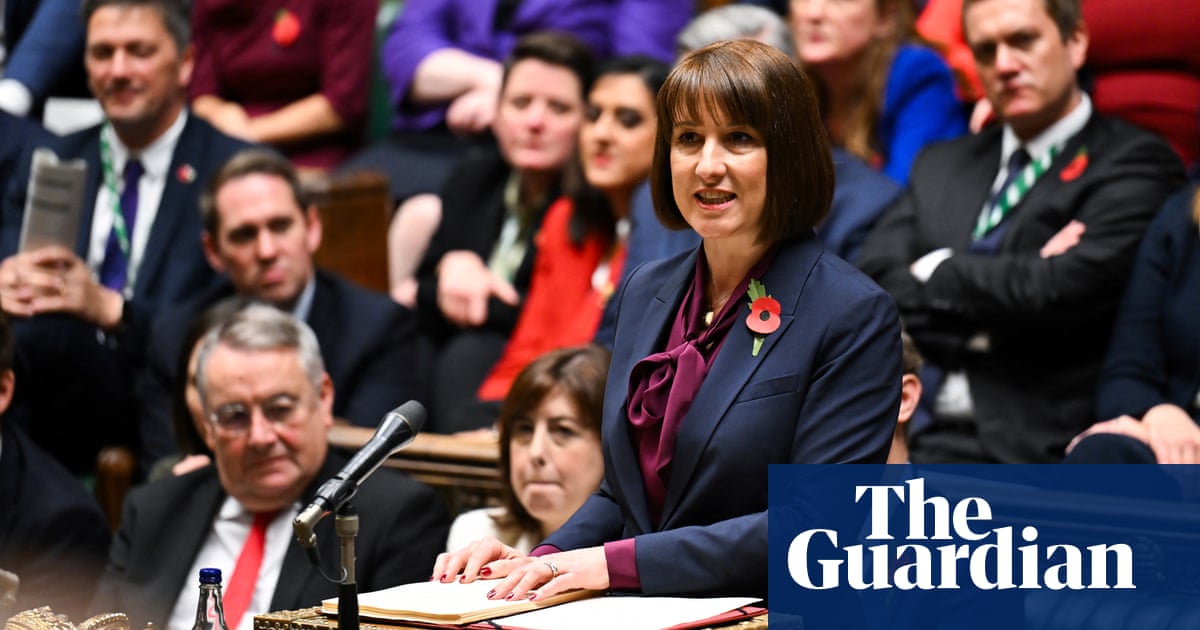
Labour’s first budget punishes the “working people” they claim to support. Keir Starmer and Rachel Reeves promised to deliver real change to the electorate, after 14 years of Tory rule. This week, they have broken that promise. This budget is austerity by another name.
While we welcome the government’s decision to invest in school and hospital buildings, it is extremely disappointing that these investments have been undermined by a swathe of public sector cuts, cruel attacks on the worst off, and a dogmatic refusal to redistribute wealth and power. These are not “tough choices” for government ministers, but for ordinary people who are forced to choose between heating their home and putting food on the table.
Labour is raising defence expenditure to 2.5% of GDP while telling us there is no money to lift 250,000 children out of poverty. This is a lie. There is plenty of money – it’s just in the wrong hands. The richest 1% in the UK hold more wealth than 70% of Britons. By refusing to impose a wealth tax, this government has chosen to force vulnerable communities to pay the price for years of economic failure, instead of making the richest pay their fair share. Labour’s first budget shows us whose side they’re on.
Years of austerity and privatisation have decimated our public services and pushed millions into poverty, disproportionately impacting women, people of colour and disabled people. Making millions of children, working, retired and disabled people poorer damages our entire economy and stretches our public services. An austerity economy is a false economy.
We, along with nearly 100 progressive Independent and Green politicians across the country, are calling on the Labour government to: 1) introduce wealth taxes; 2) abolish the two-child benefit cap and stop attacking welfare recipients; 3) reverse cuts to winter fuel; 4) restore the £2 bus cap; and 5) invest in a Green New Deal.
We refuse to believe that child poverty, mass hunger and homelessness are inevitable in the sixth largest economy in the world. A progressive movement is growing up and down the country, demanding a real alternative to this race to the bottom between Labour and the Tories, which has seen the new government perpetuate decades of austerity and rampant corporate greed.
The Tories’ collapse allowed Labour to come to power with the lowest vote share ever won by any single-party majority government. Labour haemorrhaging votes to progressive independents and Greens in their heartlands should be a lesson to this government: you are wrong to believe that progressive voters have nowhere else to go. Our movement is growing every day – and you ignore the demand for a real alternative at your peril.
Jeremy Corbyn MP Independent, Carla Denyer MP Green party co-leader, Adrian Ramsay MP Green party co-leader, Sian Berry MP Green party, Ben Lake MP Plaid Cymru, Ann Davies MP Plaid Cymru, Liz Saville Roberts MP Plaid Cymru, Llinos Medi MP Plaid Cymru, Zack Polanski Green party deputy leader and London assembly member , Leanne Mohamad Independent candidate for Ilford North, Jamie Driscoll Former North of Tyne mayor, Andrew Feinstein Former ANC MP and Independent candidate for Holborn and St Pancras, Leanne Wood Former leader, Plaid Cymru, Beth Winter Former Labour MP for Cynon Valley, Hilary Schan Chair, We Deserve Better and Independent councillor in Worthing, Anthony Slaughter Wales Green party leader
Along with many others who voted for Labour earlier this year, I hoped that the party’s first budget statement would make amends for the faltering and error-strewn start it has made in its first few months in government. I hoped that this would be the defining moment when the country learned what this Labour government stands for, what it believes in, and whether it has the courage and ingenuity to generate the scale of economic and social change needed to reverse years of Conservative decline. On that count this budget has clearly failed.
The Treasury impact statement that accompanied the budget, however, offers some mitigating reassurances. It demonstrates that the lowest-income households benefit the most from increased investment in health and education, and that the proposed changes in taxation mean the poorest households stand to gain the most and the wealthiest households will pay the most.
Overall, the budget failed the postwar Clement Attlee government’s seismic shift test, but if we imagine what would have been in a Tory budget, it does begin to feel just a tiny bit that the country finally has a Labour government in power.
Peter Riddle
Wirksworth, Derbyshire